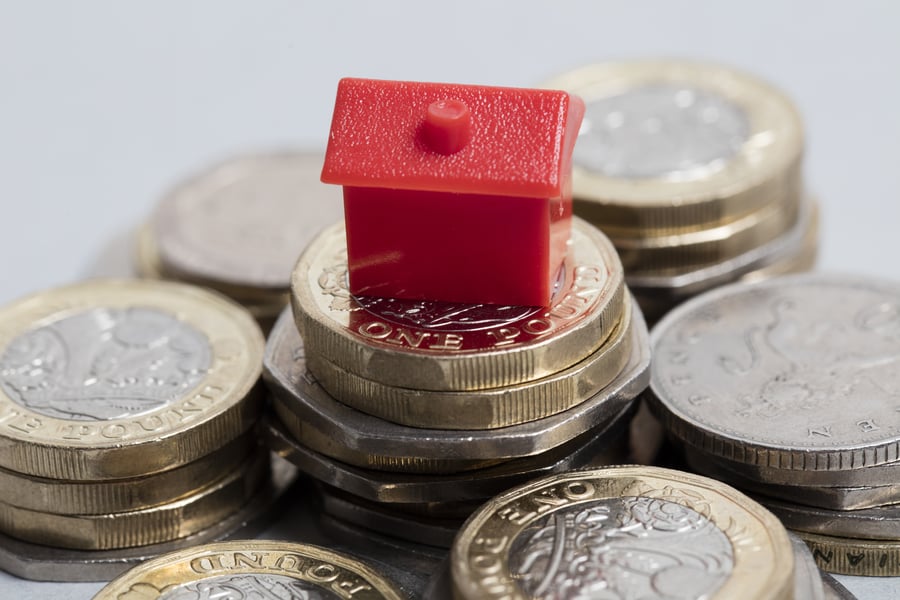Over the past three years, there has been a general slowdown in UK house price growth, but there has been a subsequent pick-up in annual growth since December 2019.

UK average house prices increased by 2.1% over the year to March 2020, up from 2.0% in February 2020, according to figures from the Office for National Statistics (ONS).
Average house prices increased over the year in England to £248,000 (2.2%), Wales to £162,000 (1.1%), Scotland to £152,000 (1.5%) and Northern Ireland to £141,000 (3.8%).
Over the past three years, there has been a general slowdown in UK house price growth, driven mainly by a slowdown in the South and East of England, but there has been a subsequent pick-up in annual growth since December 2019.
The average UK house price was £232,000 in March 2020; £5,000 higher than in March 2019.
On a non-seasonally adjusted basis, average house prices in the UK decreased by 0.2% between February 2020 and March 2020, compared with a decrease of 0.3% in the same period a year previous.
Seasonally adjusted, average house prices in the UK increased by 0.1% between February 2020 and March 2020, following a decrease of 0.1% in the previous month.
London’s average house prices increased by 4.7% over the year to March 2020; this is the largest 12-month growth London has seen since December 2016.
Property prices are generally higher in inner London than outer London.
In Q1 2020, average prices were £588,700 in inner London and £424,200 in outer London.
Between Q1 2019 and Q1 2020, in inner London the proportion of transactions of £600,000 and under decreased by 6.7 percentage points.
Overall, 25.4% of transactions in Q1 2020 were properties over £900,000, compared to 19.7% in Q1 2019.
For outer London, the proportion of transactions in the lowest price brackets (£600,000 and under) decreased by 3.1 percentage points between Q1 2019 and Quarter 1 2020.
Outer London also saw a slight increase in the proportion of transactions over £900,000, from 6.1% in Q4 (Oct to Dec) 2019 to 7.3% in Quarter 1 2020.
The ONS UK House Price Index has now been suspended until further notice, as the impact of coronavirus is expected to have substantially reduced the number of transactions in April.
This would make it difficult to produce a representative measure of house prices.
Anna Clare Harper, author of Strategic Property Investing and co-founder of property fund Anglo Residential, said: "The ONS numbers reveal a positive underlying trajectory of improving confidence in the medium-term, and more recently, unavoidable ‘material uncertainty’.
"In my business, I am seeing investors looking at both through a positive lens: investments with strong underlying value continue to perform well, and on the positive side we are seeing opportunities that would not have been possible just a few months ago."
Lucy Pendleton, property expert at independent estate agents James Pendleton, said:“Enquiry levels are off the chart at the moment and we are gradually bringing back more staff.
"Those who have already returned from being furloughed have been using words like ‘frantic’, which is a great sign.
“Only time will tell how we can convert those enquiries and how that translates into all-important prices for vendors.
"However, it’s significant that London was clearly powering ahead in March as the pandemic tightened its grip, with annual growth higher than at any point in the past three years.
"That tells you all you need to know about how prices should weather this storm, particularly in the capital which tends to inform what happens elsewhere in the country, albeit with a bit of a lag.
“London’s 4.7% price jump in 12 months was delivered by a decisive election, a Boris Bounce and decidedly muted exit from the EU.
"The key here is that all of those things have long-term significance. The pandemic, on the other hand, is a short-term tragedy.
"Life will eventually return to some kind of normal, and the fundamentals of supply and demand in the UK market, particularly in London, will not have changed.”



